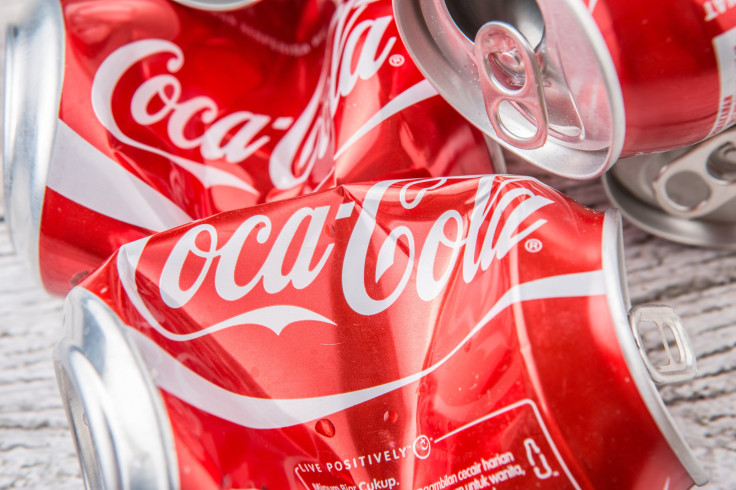Coca-Cola Pays Scientists To Blame Obesity Epidemic On Lack Of Physical Activity: What The Real Cause Is, According To Experts

People may think twice before heeding health advice from soda giant Coca-Cola, and that’s exactly why they’re funding scientists to speak for them. The Global Energy Balance Network calls itself a nonprofit of educators with the goal of improving the world’s health by addressing obesity and revealing “what really causes this epidemic.” According to the nonprofit, physical inactivity is to blame, not soda.
It’s the media that’s blaming the obesity epidemic on people consuming too much fast food and sugary drinks, the Global Energy Balance Network’s Vice President Steven N. Blair, an exercise scientist, said in a video announcing the new organization.
“And there’s really virtually no compelling evidence that that, in fact, is the cause,” Blair said. “Those of us that are interested in science, public health, medicine, we have to learn how to get the right information out there.”
Blair goes on to say that maybe people around the world are “getting fatter” because they’re not burning enough calories. He directs the focus on exercise as a solution instead of decreasing consumption of fast food and sugary beverages like soda.
The new group says they’re in the early stages of providing public education because they “just got approval for the funding to establish a global energy balance network.” So, The New York Times took a closer look at their message and traced the money funding it.
His advice comes on the heels of Coca-Cola’s $1.5 million donation into the new group last year. Coincidentally (or not) Coke has donated nearly $4 million in research funding to two of the new organization’s members, Blair and Gregory A. Hand, the dean of West Virginia University’s School of Public Health.
Taking Blair’s financially funded advice, looking at what those in science, public health, and medicine have to say may shed some light on the root causes of the obesity epidemic.
Experts on Soda’s Real Role in Obesity
“There is sufficient scientific evidence that decreasing sugar-sweetened beverage consumption will reduce the prevalence of obesity and obesity-related diseases,” according to Dr. Frank Hu, a professor of nutrition and epidemiology at the Harvard School of Public Health who has received zero dollars from Coca-Cola throughout his career.
At least one out of every three adults is obese in the United States, according to the Centers for Disease Control and Prevention, costing the country approximately $147 billion in medical fees each year, half of which are paid through Medicare and Medicaid. Harvard School of Public Health does not blame a lack of exercise for America’s obesity epidemic, in fact, quite the opposite. The rise in sugary drink consumption has been “a major contributor to the obesity epidemic.” A typical 20-ounce soda contains 15 to 18 teaspoons of added sugar and roughly 240 calories.
In 2001, researchers conducted an experiment published in the journal Lancet that demonstrated for every additional 12-ounce soda a child consumed, their risk of becoming obese increased by 60 percent. In the last 30 years, childhood obesity has more than doubled in children. In a similar timeframe, children drank down 60 percent more calories from sugary beverages between the years 1989 and 2008, according to study published in the Nutrition Journal.
In the last 40 years, there has been a 300 calorie per day consumption increase in America. About half of those calories come from sugary beverages. For people to keep up with their soda consumption by burning calories, they’d have to run an extra two miles every time they drank a can of Coke. That’s in addition to the five hours a week of physical activity the Office of Disease Prevention and Health Promotion recommend for adults.
Studies have shown how ineffective it is to exercise on a poor diet, especially one laden in liquid sugar. The human biology isn’t designed to consume nutrient-deficient food and drink and function properly, let alone exercise. An editorial in the British Journal of Sports Medicine, outright says that exercise is not the key to weight loss if we still consume sugars and carbohydrates at excessive levels.
“Regular physical activity reduces the risk of developing cardiovascular disease, type 2 diabetes, dementia and some cancers by at least 30 percent,” the researchers wrote. “However, physical activity does not promote weight loss.”



























